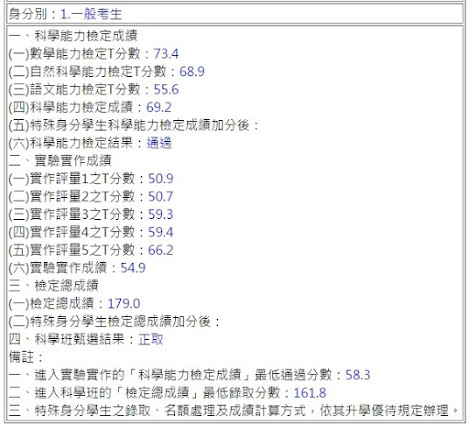TIOJ 1783:養殖手觸
TIOJ 1783:養殖手觸
題目大意:有 $n$ 個觸手,分為 $A$ 類與 $B$ 類,有四種操作,第 $0$ 種會有 $x$ 與 $y$,代表 $x,y$ 是同一類的觸手;第 $1$ 種會有 $x$ 與 $y$,代表 $x,y$ 是不同類的觸手;第 $2$ 種會有 $x$,代表 $x$ 變成與原本相反的觸手;第 $3$ 種會有 $x$,代表 $x$ 的種類變為未知。一開始都不知道觸手是哪一種,只能通過這些操作來判斷,但是可能會有一些操作與前面的操作矛盾,要求出矛盾的操作量。
解法:我一開始原本直接把小的集合併到大的集合,結果直接 $\text{MLE}$,後來發現可以用並查集,$to_i$ 代表這個節點指向哪個節點,$opp_i$ 代表與 $to_i$ 相反種類的節點,每次合併時要一些特判,然後有可能會需要新增新的節點,但最後很不幸的 $\text{SF}$ 了,我才發現一開始不能將 $to_i$ 設為 $i$,要指向額外的節點才行。在過程中我又寫了另一個比較不複雜的解法,就是假設 $x$ 為 $A$ 類觸手成立,它會跟哪些人在一起,假設 $x$ 為 $B$ 類觸手成立,它又會跟哪些人在一起。
$\text{Code:}$
#pragma GCC optimize("O3")
#include <bits/stdc++.h>
using namespace std;
#define Waimai ios::sync_with_stdio(false),cin.tie(0)
#define FOR(x,a,b) for(int x=a;x<=b;x++)
#define pb emplace_back
#define F first
#define S second
const int SIZE = 2e6 + 5;
int cnt, to[3 * SIZE], opp[3 * SIZE];
int dsu (int x) {return x == to[x] ? x : (to[x] = dsu (to[x]));}
void Merge (int a, int b) {
int oa = opp[a], ob = opp[b];
to[b] = a;
if (oa && ob) {
to[ob] = oa;
} else if (ob) {
opp[a] = ob;
opp[ob] = a;
}
}
void Diff (int a, int b) {
int oa = opp[a], ob = opp[b];
if (oa) {
Merge (b, oa);
} else if (ob) {
Merge (a, ob);
} else {
opp[a] = b;
opp[b] = a;
}
}
void Change (int a) {
int ga = dsu (a), oa = opp[ga];
cnt++, to[cnt] = to[a] = cnt;
Diff (cnt, ga);
}
int n, q, ans;
void solve() {
cin >> n >> q;
cnt = n;
FOR (i, 1, n) cnt++, to[i] = to[cnt] = cnt;
while (q--) {
int ty, a, b, ga, gb;
cin >> ty;
if (ty == 0) {
cin >> a >> b;
ga = dsu (a), gb = dsu (b);
if (opp[ga] == gb) {
ans++;
continue;
}
Merge (ga, gb);
} else if (ty == 1) {
cin >> a >> b;
ga = dsu (a), gb = dsu (b);
if (ga == gb) {
ans++;
continue;
}
Diff (ga, gb);
} else if (ty == 2) {
cin >> a;
Change (a);
} else {
cin >> a;
cnt++, to[cnt] = to[a] = cnt;
}
}
cout << ans << '\n';
}
int main() {
Waimai;
solve();
}#pragma GCC optimize("O3")
#include <bits/stdc++.h>
using namespace std;
#define Waimai ios::sync_with_stdio(false),cin.tie(0)
#define FOR(x,a,b) for(int x=a;x<=b;x++)
#define pb emplace_back
#define F first
#define S second
const int SIZE = 2e6 + 5;
int n, q, ans;
int cnt, to[6 * SIZE];
int dsu (int x) {return to[x] == x ? x : (to[x] = dsu (to[x]));}
void Merge (int a, int b) {
a = dsu (a), b = dsu (b);
if (a != b) {
to[b] = a;
}
}
void solve() {
cin >> n >> q;
cnt = 2 * n;
FOR (i, 1, 2 * n) cnt++, to[i] = to[cnt] = cnt;
while (q--) {
int ty, a, b;
cin >> ty >> a;
if (ty == 0) {
cin >> b;
if (dsu (a) == dsu (n + b)) {
ans++;
continue;
}
Merge (a, b);
Merge (n + a, n + b);
} else if (ty == 1) {
cin >> b;
if (dsu (a) == dsu (b)) {
ans++;
continue;
}
Merge (a, n + b);
Merge (b, n + a);
} else if (ty == 2) {
int ori = dsu (a), iro = dsu (n + a);
cnt++, to[a] = to[cnt] = cnt;
Merge (iro, cnt);
cnt++, to[n + a] = to[cnt] = cnt;
Merge (ori, cnt);
} else {
cnt++, to[a] = to[cnt] = cnt;
cnt++, to[n + a] = to[cnt] = cnt;
}
}
cout << ans << '\n';
}
int main() {
Waimai;
solve();
}我的分享就到這裡結束了,如果喜歡我的 $\text{Blog}$,歡迎追蹤!

留言
張貼留言